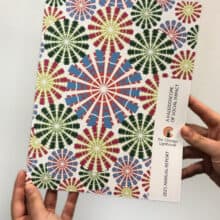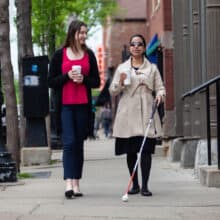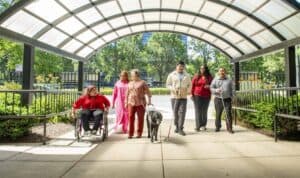Commentary: Including Voters with Disabilities in the Election Process
August 23, 2016
Voters with disabilities are projected to play a significant role in the 2016 presidential elections, or so a recent report indicates. Researchers at the Rutgers School of Management estimate that 35.6 million individuals with disabilities will be eligible to vote by November 2016. On the other hand, only 28.7 million African Americans and 29.5 Latinos will be eligible. The number increases to 62.7 million when taking into account families, caregivers and anyone affected by disability matters.
Around 56 million people in the United States have a disability, and many go as far as describing us as the largest minority in the United States. This new report about voters with disabilities suggests that such description might be right. People with disabilities are everywhere, and we also want our voice to be heard. The reality is that we are all prone to becoming disabled, and more attention should be given to this group by politicians. Access to better health care, more employment opportunities and accessible housing are just some of the topics of concern to the millions of Americans living with, or caring for, someone with a disability.
The number of eligible voters with disabilities is without a doubt significant, but it leads me to wonder how many will actually cast their ballots independently? Laws like the Americans with Disabilities Act and Help America Vote Act insure that everyone has equal access to polling places and voting equipment. Unfortunately, many Americans with disabilities are still unintentionally excluded from the election process. Polling places might be inaccessible to wheelchair users, or staff is unaware about how to operate the special equipment that can help those with vision loss vote independently. More attention should be given to the difficulties voters with disabilities encounter.
These and other issues should be brought to light by the media. More often than not, media places a lot of emphasis on topics of concern to minority groups like Latinos and African-Americans, but not much is said about those who have or know someone with a disability. This, I think, is partly why the general public often overlooks this group. Challenges faced by all minorities are important, and those encountered by people with disabilities are not the exception. Not only can exposing these important issues shed light about the things that affect us the most, but it will also help everyone become better informed and elect the best candidates.
What pressing issues do you have as a person with a disability? Do you think the media and politicians in general need to pay more attention to these concerns? Please share your thoughts! Stay tuned to Sandy’s View, where we will discuss how people who are blind or visually impaired can vote independently in the upcoming elections.





